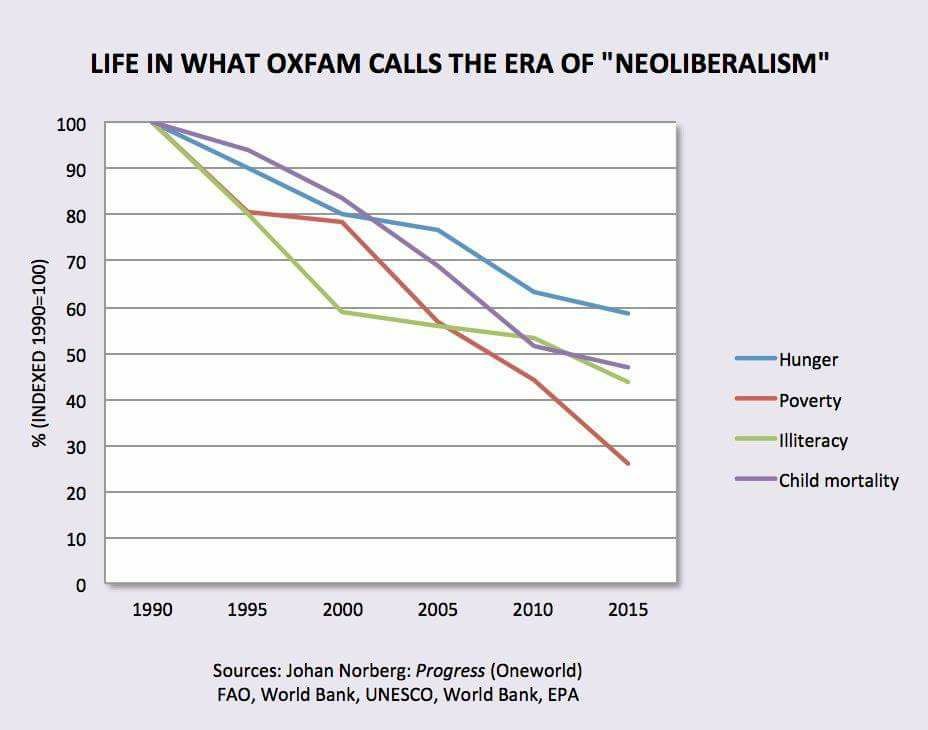"Au delà de tous les sophismes contre l'abominable mondialisation capitaliste et la non moins exécrable financiarisation de l'économie, voici quelques chiffres sur l'état du monde. De quoi faire réfléchir tous ceux qui, quel que soit leur bord, appellent au protectionnisme et à la fermeture des frontières."
Translation: Going beyond all the sophistry about horrible capitalist globalisation and the no less awful financialization of the economy, here are some numbers about the state of the world. Food for thought for all who, regardless of their political leaning, call for protectionism and the closing of borders.

"Life in what Oxfam calls the Era of "Neoliberalism"
Hunger, Poverty, Illiteracy, Child mortality
Sources: Johan Norberg: Progress (Oneworld) - FAO, World Bank, UNESCO, World Bank, EPA"
Addendum:
Poor Thinking from Oxfam
"Oxfam began as the Oxford Committee for Famine Relief. It still does valuable disaster relief work today, but it often functions like a political campaigning group...
This year they highlighted Vietnam as a case of deprivation, and it is true that Vietnam is still a very poor country. But it started from a very low base: they only brought in broadly capitalist institutions in 1986. Since then, their income per capita has gone from $100 per annum to $2,000, and continues to grow at stratospheric rates, mirroring the widely-lauded situations in China and, to a lesser extent, India.
China and India are still poor by Western standards, but a report focused on how capitalism was failing them would rightly have been deemed ludicrous – everyone knows how well they’ve done since abandoning full state control of their economies...
Let us suppose that we went even further than Oxfam would like and redistributed the whole of the wealth of the richest people equally throughout the world and throughout the lifetimes of the world population.
Depending on how you do the calculation, you would end up giving everybody a pay rise of between 65p and £1 per year – or about 0.03 per cent for your average Kenyan.
And, at the same time, you would have destroyed the system by which entrepreneurial- led innovation promotes economic growth and which has enriched previously destitute countries in a way that Oxfam could never have imagined back in 1980...
We should stop focusing on the rich as if they are the problem and, instead, focus on the policies which reduce the number of people who are poor"